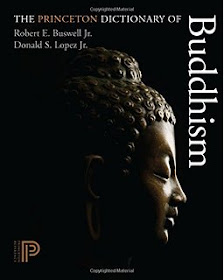The Jews started their first one in 1900 and this was joined by the Encyclopaedia Talmudit in 1942. The majesterial
26 volume Encyclopaedia Judaica came out in 1972. The Catholic Encyclopaedia saw the light of day in 1907. The Encyclopaedia of Islam was first published
in 1913 and in 2005 the six volume Encyclopaedia of the Qur’an was
published. Brill’s Encyclopaedia Islamica,
a translation of the magnificent Dā'erat-ol-Ma'āref-e Bozorg-e Eslāmi, is on-going and is projected to take
up 16 volumes when finished. And of
course the recent Encyclopaedia of Islamic Law in three volumes, and the huge Encyclopaedia
of Hadith must not be forgotten. There is even an Encyclopaedia of Hadith Forgeries! The
11 volume Encyclopaedia of Hinduism has just been published. As with most things, the
Christians are ahead of the game. For reasons of space I can mention only a few of their encyclopaedias. The Encyclopaedia Biblica was published in 1899, although I think there
were several similar works before this. The Encyclopaedia of
Bible Difficulties, Baker Encyclopaedia of Christian Apologetics, The
Encyclopaedia of Eastern Orthodox Christianity, A Concise Encyclopaedia
of Christianity in India, The World Christian Encyclopaedia, The
Encyclopaedia of Christian Civilization, The Encyclopaedia of Christian Theology (3
vols.), The Oxford Encyclopaedia of the Reformation (4 vols.), The
Oxford Encyclopaedia of South Asian Christianity (2 vols.), The Oxford Encyclopaedia of the Bible and the Arts, and The Seventh-day Adventist Encyclopaedia (12
vols.). Everything you could possibly want to know about every aspect of the faith. Even a small sect like the Mormons (4 million members?)
has its
four volume Encyclopaedia of Mormonism (1992).
Now we turn to
Buddhism. In the early 1950s as the Buddhist world geared up for the Buddha
Jayanti the government of Ceylon undertook to publish an Encyclopaedia of
Buddhism, an idea that was first broached, I think, by G. P. Malalasekera.
Unusually for traditional Buddhists, a great deal of careful thought went into
the project. Specialists in Buddhism from around the world were invited to
participate and included big names such as I. B Horner, Giuseppe Tucci, B. C.
Law. P. V. Bapat, N. Dutt, Helmut von Glasenapp, and even the likes of Lama
Govinda and Christmas Humpherys. The Ceylon
government purchased at considerable expense a fine quality acid-free paper for
the volumes and made generous contributions to the project. After careful consideration it was decided
that the whole project would need 15000 pages and take 10 years to complete. In 1965 the first
volume was complete and proved to be a tour de force. But a perceptive
observer might have noticed a problem;
that of the project being
over-ambitious. It covered the doctrines of all schools, history, art,
literature, indeed just about everything related to Buddhism. It was clear that
even every book in the Tibetan Tipitaka was going to have a separate entry. How
on earth was all this going to be fitted into 15,000 pages?
Then there was the problem of being associated with the Ceylon/Sri Lankan government. Political
appointments to the editorial staff, cutback of funding, and a general slowness
started to take its toll. By volume IV (1979-1987) the project was in serious
trouble. This is reflected by the quality of the articles, although some are
still excellent, the cutback in the number of articles, the cheap paper, the
different font from the earlier volumes and the different size of each volume. Put
all the volumes on a shelf and they are all of a different size. And now the
output has slowed to a crawl. Recently I asked a former staff member when the
final volume was expected to come out; he smiled and said: “When the next
world-system starts to re-evolve.”
Of course with the
slow decline of the Sri Lankan Encyclopaedia other attempts have sprung
to life. Apart from small efforts on individual Buddhist schools (e.g. An Encyclopaedia
of Korean Buddhism and The Illustrated Encyclopaedia of Zen Buddhism)
we have the new Brill’s
Encyclopaedia of Buddhism which is planned
to be in seven volumes and looks promising, the Edward Irons Encyclopaedia of
Buddhism, the Thomas Gale Encyclopaedia of Buddhism edited by Robert E. Buswell and Encyclopaedia
of Buddhism edited
by Damien Keown and Charles Prebish (only 857 pages of entries). These last three efforts cover the subjects in no more
detail than does The Princeton Dictionary
of Buddhism. As if to reinforce the perception of Buddhism being disengaged
none of them have an entry on marriage or quite a few other subjects relevant
to 99% percent of Buddhists or those wanting to know more about Buddhism.
I will say more in
this subject in my next post.





